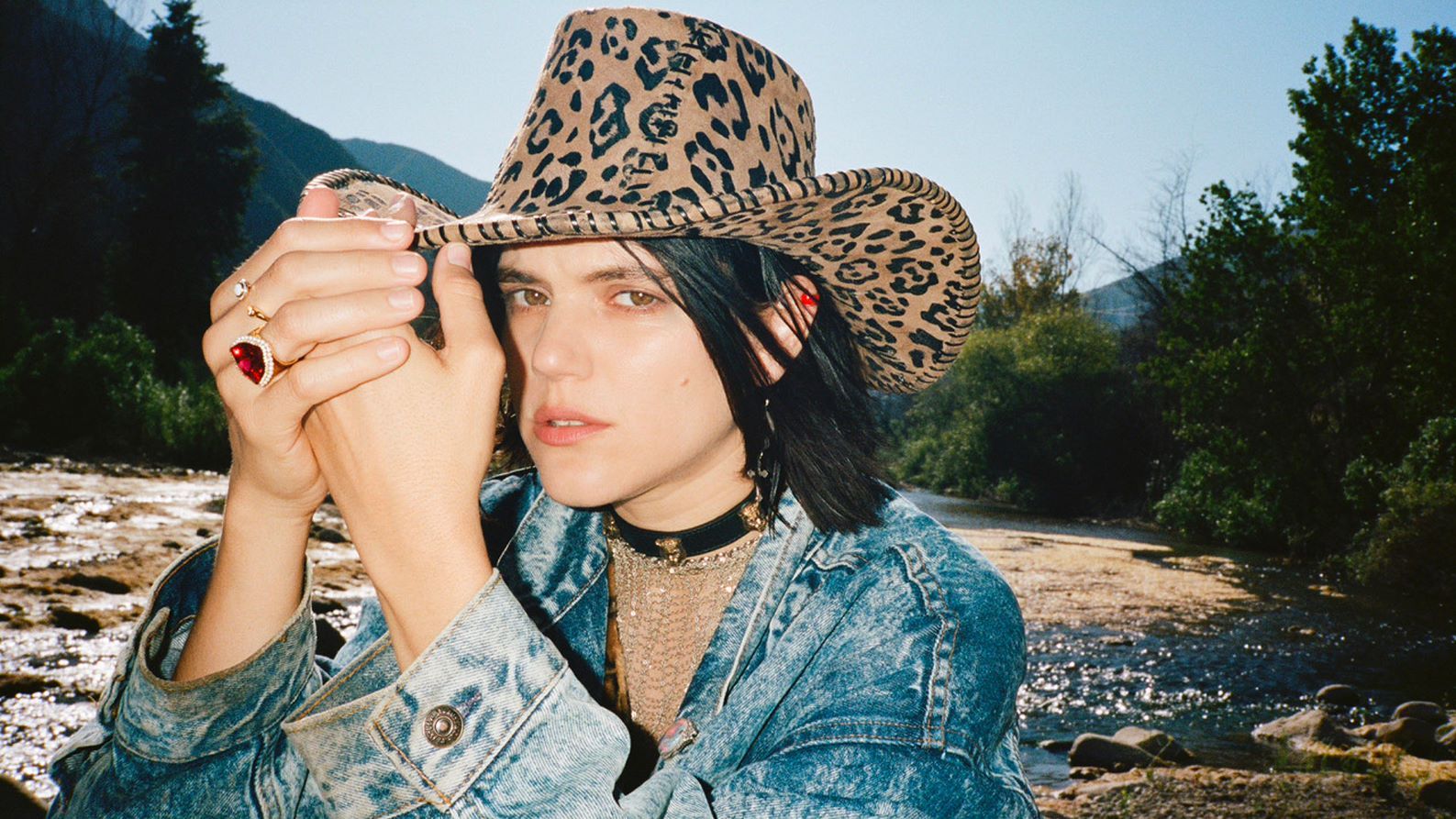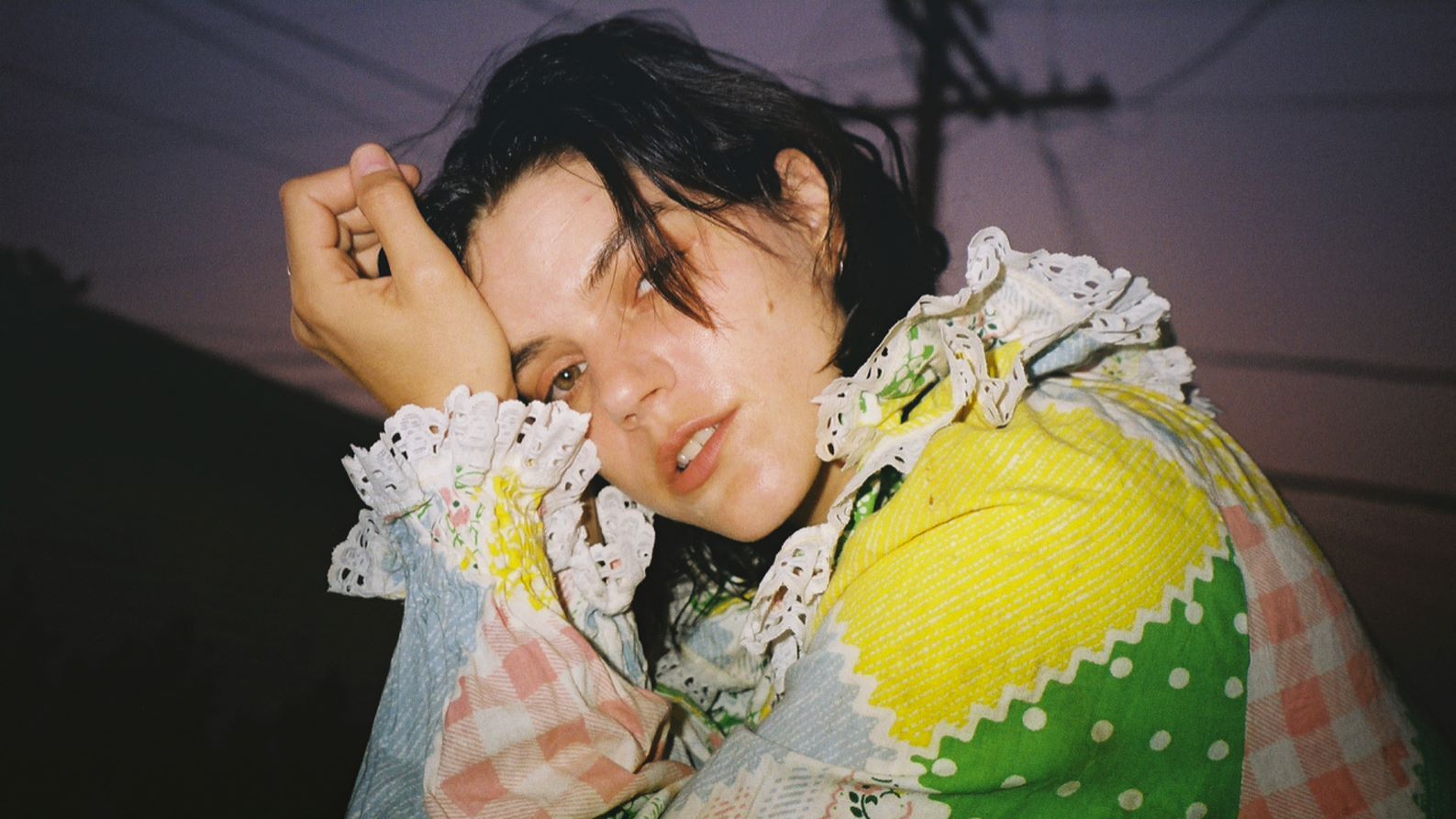-
SOKO: "MUSIC IS A PERFORMANCE"

Printemps.com: When you released your second album, My Dreams Dictate My Reality, you made the cover of several fashion magazines. What importance do you attach to clothing?
Soko: In my view, the way we dress is a form of expression: It's an extension of my artistic persona, something that reflects my emotions, my frame of mind and the way that I want to portray myself to the public. That's also why I'm having a great time as an actress; putting on costumes is always fun. Also, I have loads of tics. For example, I tend to wear red when I have an important event. Then yellow is a colour that I wear when I'm feeling good, and I want to be a ray of sunshine. I like translating my intentions through my looks.
In 2018, you posed for a Gucci campaign. How did your collaboration with this label come about?
In 2016, two films I'd been in were selected at Cannes: The Stopover and The Dancer. It was [Gucci's Creative Director] Alessandro Michele's first season, and he and his teams decided to dress me for the occasion. Since then, we've hit it off; they invited me to their show, asked me to create the playlist for their stores and invited me to take part in their campaign, alongside Faye Dunaway. She's a real diva, but she took care of me. I was four months pregnant during the shoot and I had morning sickness, but I have great memories of it.
What appeals to you about Alessandro Michele's maximalist aesthetic?
That's easy: I love everything about him! His patterns, his colours, even the store design. It's like you're entering into a new dimension every time. And I feel like Gucci has managed to build an ideal world, where we celebrate differences, where we promote gender equality, where we don't judge people's bodies...
Developing playlists for their various stores must have been an interesting task. Did it partly inspire the colour of your third album?
The idea of the playlists was to select very cheerful music. But I mostly listen to sad songs... Luckily, I'm a nerd and I just had to rummage through my huge record collection to find songs that could make people happy. As for my album, it had already been produced by then... But it's true that I wanted a brighter colour, from a more intimate and sensual world, even though the lyrics remain very personal, vulnerable and sensitive.
On that subject, your new album is called Feel Feelings. Is it easy for you to express your emotions through music?
I love writing, asking myself where I am and understanding my state of mind at that given moment. I have always done that naturally, so the real challenge with this new album was to include all that without projecting myself into the past, or into future fantasies. I wanted it to be skin-deep.
"I wanted a brighter colour, from a more intimate and sensual world, even though the lyrics remain very personal, vulnerable and sensitive."
The first single is called "Being Sad Is Not a Crime." Do you find that the feeling of sadness gets rejected by our modern society?
There are obviously lots of feelings of shame and guilt around these emotions and the way we hide them in public. For example, we never truthfully answer the question "How are you?" We generally just answer with "fine" —but it's okay to be vulnerable. Personally, I realise that my best conversations arise when the person I'm talking to, is answering truthfully. But we live in an Instagram society, where we are growing accustomed to putting filters on everything, including our emotions and our lives... We are never completely honest, but if we accepted our emotions more easily, it would help resolve a lot of problems.

© Miriam Marlene
Some of your songs have also been played in TV shows, such as "We Might be Dead Tomorrow" featured in The End of the F***ing World. In your view, do these types of collaborations support artists in their quest for independence?
I don't know how it works for others, but I was paid peanuts... So the financial aspect is less important than seeing your music appear on a Netflix series, and seeing it alongside other worlds, other images. It's more prestigious than profitable, in the end.
You were saying that you also appeared in some films in the past few years. Does being an actress allow you to express certain emotions that are difficult to put into music?
When I make films, I kind of have to think of the emotions of the character and put my personal life on hold. I have to become someone else. That creates a form of empathy, a compassion towards another person, which allows me to get to know myself better in retrospect.
You played a marionette in the "Being Sad is Not a Crime" music video, a magician in "Are You a Magician?" and you played a dancer in The Dancer. What do you like about taking on someone else's persona?
It's fun. Aesthetically, it lets me constantly explore new avenues. We mustn't forget that music is a performance too: I'm not the same person in an interview as I am on stage or in a video. I have to find ideas to perform. And then it's always fun to be able to dress up, it takes me right back to childhood.
The music video of "Are You a Magician?" was directed by Gia Coppola. Does being based in Los Angeles help you to build these kinds of contacts?
Let's say that it has helped me build a circle of friends that is different to the one I had in Paris. But that takes nothing away from the talents of my loved ones in France... As for Gia, she's someone who I adore in life, and we were friends long before we made the video. We were just playing in my son's room and we got the idea to do a project together, something that could tie into Georges Méliès' legacy.
In your view, what is it about Los Angeles that continues to attract artists from all over the world?
In America, lots of people say that California is a small country in itself: It's a super-progressive State, very focused on inclusion and diversity, where you notice lots of activists ready to take to the streets and make progress. I'm vegan, and the same holds true in that regard: In restaurants or elsewhere, you feel that there is less judgement about having this regimen. And besides, the weather is always beautiful in Los Angeles. I get up at 6:00 am, the sky is blue and it's hot... that helps!